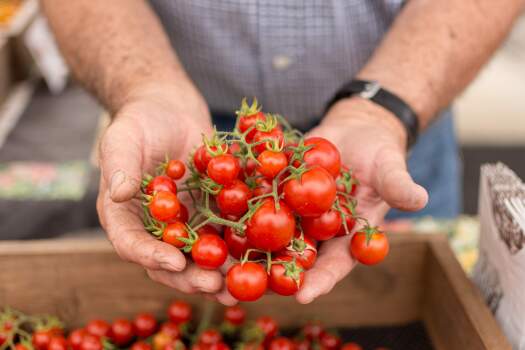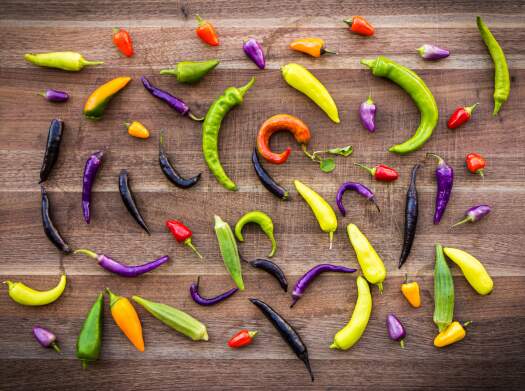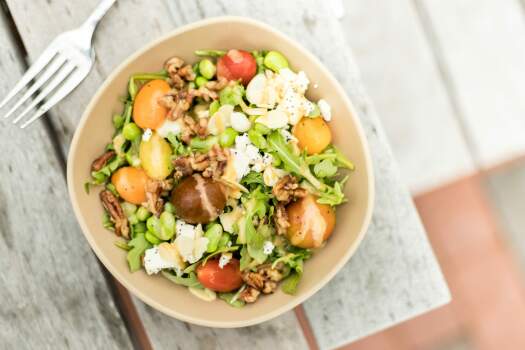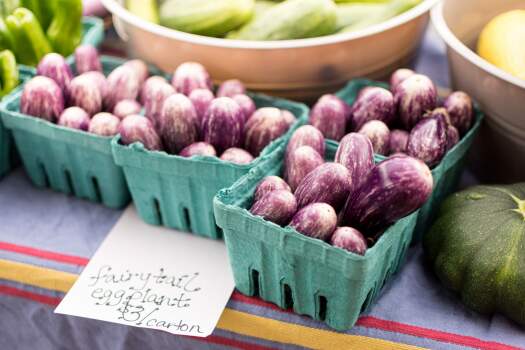
Sustainability Initiatives
contributing to a responsible food system
Our dining team strives every day to create a responsible dining program. From working to minimize waste, support local partners with responsible sourcing, and creating green dining facilities, we are always looking for new ways to care for our world through a sustainable food system.




responsible sourcing
Our chefs work closely with local food systems to source our food responsibly. By sourcing seasonal ingredients and products produced with integrity, we can sustain responsible partners. To us, sustainable food means ingredients that are plant-based, 3rd party certified as sustainably produced and ingredients that are sourced from local and community based vendors.
Our team is passionate about incorporating local, seasonal ingredients into menus as much as possible. Springfield Dining has implemented a preferential purchasing system that identifies food grown or produced within 150 miles, and its sustainable attributes. Local produce is harvested closest to its peak for a fresher, more flavorful nutrient-filled result. Not only do local foods tend to be fresher, local purchasing reduces transportation carbon emissions and invests money into community based operations. Look for locally grown signage to taste the best flavors our area has to offer, celebrate the season selections, and support the local efforts of our community!
Plant based foods (vegetables, whole grains, beans, etc) are proven to have a lower environmental impact than resource intensive animal products. With continuous recipe development for vibrant and unique plant based options, Springfield College provides diverse, complete-protein vegan dining options at all meals.
Our livestock farmers and ranchers share our high standards for humane animal treatment and environmental sustainability. We source beef, pork, chicken, milk, eggs, and turkey from farms using regenerative agriculture principles, and certified animal welfare practices.
We serve beef certified as Global Animal Partnership Step 4, meaning cattle are on open pasture at all times. This allows natural grazing, enrichment, and eliminates pollution caused by cattle feedlots. By breeding for growth efficient genetics, cattle require less feed, resulting in a smaller greenhouse gas footprint.
We serve pork certified as Global Animal Partnership Step 1, meaning pigs are free to roam and interact with each other, and free of gestation crates.
We serve chicken and turkey that are Certified Humane, which ensures poultry are hatched, raised, transported, and processed following animal welfare standards. Our chicken and turkey are raised naturally with access to enriched, uncrowded indoor/outdoor nesting, and self-regulated eating and drinking schedules.
We serve cage free eggs from hens in enriched colony housing, which allows natural behaviors like nesting, perching, scratching, and socializing.
Fair Trade coffee is served in all residential, retail, and catering dining operations. Springfield Dining Services recognizes the need for social and environmental responsibility towards farm workers, our customers, and our communities. Benefits of these programs for coffee farmers mean community development, health, education, and environmental stewardship.
Committing to Cool Food means reducing our greenhouse gas emissions associated with food purchasing by at least 25% by 2030. Cool Food Meals have a carbon footprint that falls below an established per-meal threshold that meals should meet by 2030.
our operations
Sustainable practices extend to our facilities, where our team members work to ensure that our daily operations contribute to a healthy environment.
The most important step to food waste prevention happens before our ingredients even reach our kitchens: planning to match food production to food consumption. Our teams track ingredient consumption and use daily, creating more efficient and informed menu forecasting.
We use 100% recycled content office and copy paper in all dining locations on campus.
In all dining locations, 100% of cooking oil that is no longer food safe is recycled into biodiesel.
By eliminating trays in dining locations, we conserve water and energy used in dishwashing, as well as reduce consumer food waste.
As of 2021, The Table @ Cheney Hall is Green Restaurant Certified, meeting efficiency standards in water conservation, waste reduction, sustainable food, and pollution reduction.
All dining locations are committed to using green cleaning products in our operations to reduce the need for chemical based cleaning products and provide a healthy and safe learning environment.
waste minimization
Through reusables, compostable and recyclable materials, our teams strive to reduce waste in all forms.
Dining Services composts all pre and post-consumer food waste from every dining kitchen across campus. By diverting our food waste to compost, we decrease our landfill footprint and contribute to nutrient rich soil in Massachusetts.
Through giveaway events, and exchange programs, we try to make reusing as easy as possible. For example, each student with a meal plan is given a reusable to-go container at the beginning of the year for use at residential dining locations.
For times when reusables aren’t available, Springfield Dining provides 100% compostable silverware, cups, lids, and napkins.
Springfield Dining recycles pre-consumer plastic, paper, cardboard, and aluminum, and partners with Springfield College to provide post-consumer recyclable options when compostable isn’t available.